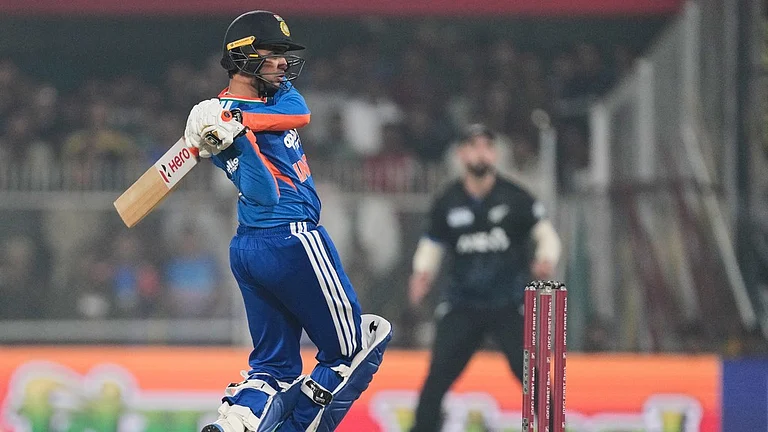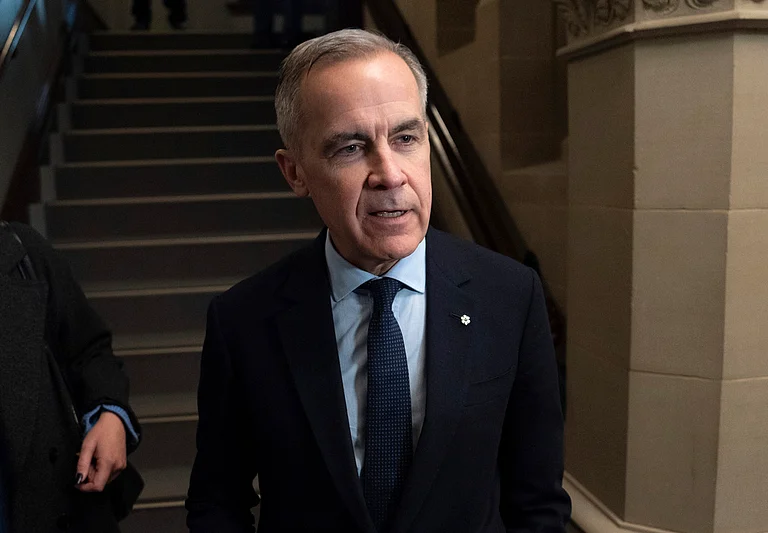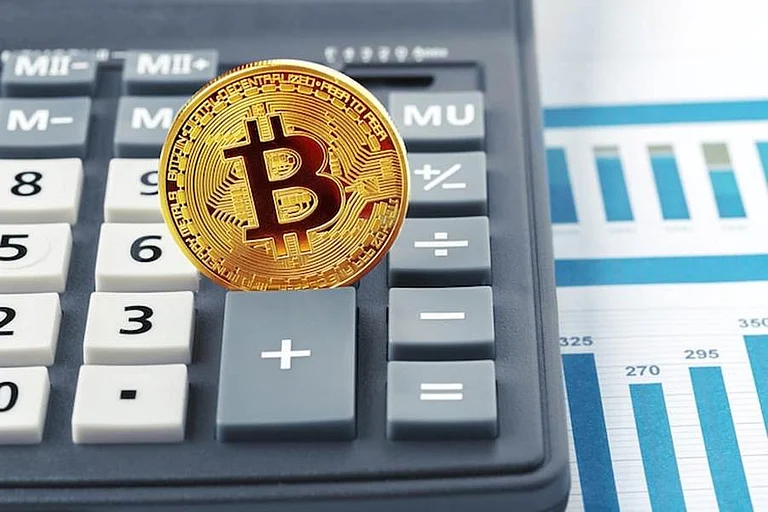Canadian-Indian ties have hit a new low after Canada expelled six Indian diplomats on Monday. Canada PM Justin Trudeau while speaking to reporters said the police had uncovered “clear and compelling evidence” of the Indian government’s involvement in activities threatening public safety in Canada.
The decline in relations between the two nations, however, has not stemmed from a single event, but rather from a series of developments that began with the killing of Khalistani leader Hardeep Singh Nijjar in June of last year.
Outlook looks back at the events as they unfolded:
Assassination of Hardeep Singh Nijjar
In June of last year, Hardeep Singh Nijjar, a prominent Sikh separatist leader advocating for an independent Khalistan, was shot outside a Gurudwara in a Vancouver suburb by unknown assailants. Nijjar, who was wanted by India's National Investigation Agency in four cases, was attacked while sitting in his car, prompting widespread protests from his community. He had been designated a terrorist under India's Unlawful Activities (Prevention) Act in July 2020.
Trudeau alleges Indian links
In September, Canadian Prime Minister Justin Trudeau accused India of involvement in Hardeep Singh Nijjar's murder, suggesting ties to the Indian government. This led to Canada expelling an Indian diplomat, prompting India to retaliate by expelling a senior Canadian diplomat and calling Trudeau's claims "absurd and motivated”.
India orders repatriation of 41 Canadian diplomats
In October 2023, the diplomatic rift escalated when India demanded Canada repatriate about 41 diplomats by October 10, reducing their presence in India to 21. India threatened to revoke diplomatic immunity for those who remained past the deadline. Prime Minister Trudeau stressed the need for diplomats in India to support Canadians during this difficult period. Canadian officials labelled India's threat a "violation of international law," while India's Ministry of External Affairs denied this claim.
"The state of our bilateral relations, the much higher number of Canadian diplomats in India, and their continued interference in our internal affairs warrant a parity in mutual diplomatic presence in New Delhi and Ottawa," MEA said.
US alleges Indian government involved in plot to kill Gurpatwant Singh Pannun
In November, the United States charged Nikhil Gupta, an Indian national, with conspiring to kill a Sikh separatist on American soil, alleging he was working with an Indian government employee. India's Ministry of External Affairs called this a "matter of concern" and announced a high-level investigation into the case. Prime Minister Justin Trudeau said the indictment highlighted Canada's allegations regarding India's involvement in Hardeep Singh Nijjar's murder and urged India to take it seriously. Trudeau also noted that Canadian authorities have been collaborating with US counterparts since August on the allegations surrounding Nijjar's killing in June.
Trudeau says a “tonal shift” in India-Canada ties
In an interview with CBC in December, Prime Minister Justin Trudeau expressed that ties with India had taken a turn amid the Pannun murder controversy. He noted that there is an understanding that "they can't bluster their way through this."
Canada High Commissioner says “strategic interests aligned”
On January 11, Canada's High Commissioner to India, Cameron Mackay, stated that despite recent tensions, Canada and India share aligned strategic interests. Speaking at the Vibrant Gujarat Global Summit seminar on 'India-Canada Business: The Way Forward,' he expressed optimism about the ongoing bilateral trade and investment relationship and advised both governments and business communities to focus on diplomacy while recognising their long-term strategic alignment.
Canada labels India a “foreign threat”
In February, a declassified document from the Canadian Security Intelligence Service revealed that authorities had identified India as a "foreign interference threat" that could impact Canadian elections. The report stated that "India engages in foreign interference activities," with nearly three pages dedicated to India, though much of it was redacted.
Arrests made in relation to Nijjar’s killing
In May, Canadian police arrested members of an alleged hit squad believed to be sent by the Indian government to kill Khalistani separatist Hardeep Singh Nijjar. Three Indian nationals—Karan Brar, Kamalpreet Singh, and Karanpreet Singh— were arrested on May 3, all charged with first-degree murder and conspiracy. A fourth Indian national, Amardeep Singh, was arrested on May 12.
Modi-Trudeau pledge to work together
On June 15, Canadian Prime Minister Justin Trudeau announced that India and Canada agreed to collaborate on addressing key issues following his meeting with Prime Minister Narendra Modi on the sidelines of the G-7 Outreach Summit in Italy.
Jaishankar meets Chandra Arya
In August, Chandra Arya, a Canadian MP from Prime Minister Justin Trudeau's caucus, met with India's External Affairs Minister S Jaishankar in New Delhi. This marked the first contact since Trudeau's September 18 allegations linking Nijjar’s murder to Indian officials, barring the brief meeting of Modi and Trudeau in Italy. During the meeting, Arya emphasised that the Canada-India relationship was "very important for both countries.




























